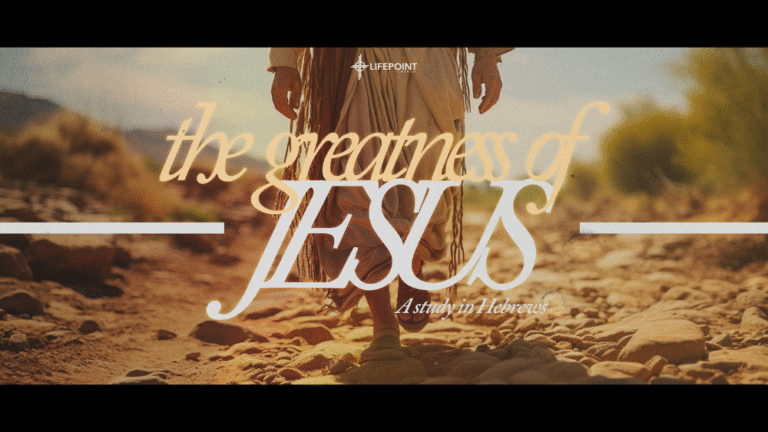Hebrews 6:4–8 is one of the most discussed—and sobering—warnings in the New Testament. It speaks about people who were “once enlightened,” who “tasted the heavenly gift,” who “shared in the Holy Spirit,” and yet “fell away,” saying it is “impossible to restore them again to repentance.” What does this mean? Can genuine Christians lose salvation? Or is the author describing people who were never truly born again?
The Passage
Hebrews 6:4–6 (ESV)
For it is impossible, in the case of those who have once been enlightened, who have tasted the heavenly gift, and have shared in the Holy Spirit, and have tasted the goodness of the word of God and the powers of the age to come, and then have fallen away, to restore them again to repentance, since they are crucifying once again the Son of God to their own harm and holding him up to contempt.
The writer immediately follows with an illustration (vv. 7–8): the same rain falls on two fields; one bears fruit and is blessed, the other grows thorns and is burned. The question is how to read that warning in light of the whole Bible.
Three Major Views Christians Hold
1) Genuine Christians Can Commit Apostasy and Be Lost
Summary: The passage describes true believers who fall away from Christ through deliberate rejection, losing salvation permanently.
Biblical support: The language of being “enlightened” and “sharing in the Holy Spirit” seems genuinely salvific; similar warnings appear in Hebrews 10:26–31 and 2 Peter 2:20–22.
Historical supporters:
- Early Church Fathers such as Tertullian and Origen, who warned that post-baptismal sin might be unforgivable.
- Arminian theologians like Jacob Arminius (16th c.) and John Wesley (18th c.), who taught that true believers could fall away by persistent rebellion.
- Many in the Methodist, Holiness, and Pentecostal traditions hold this today.
Strength: Takes the warning as literal and sobering.
Weakness: Appears to conflict with passages affirming God’s preservation of believers (John 10:28–29; Philippians 1:6).
2) Participants in Church Life, But Never Truly Saved
Summary: These individuals experienced real spiritual privileges in the covenant community—exposure to God’s truth, gifts, and grace—but were never inwardly regenerated. Their later departure reveals their true state.
Biblical support: The contrast in Hebrews 6:9 (“things that belong to salvation”) and parallels like 1 John 2:19. The “rain and field” metaphor pictures people under the same spiritual influences producing different fruit.
Historical supporters:
- Augustine (4th–5th c.)—distinguished between those visibly in the church and the truly elect.
- John Calvin (16th c.)—saw the experiences described as “common operations” of the Spirit given to the non-elect.
- John Owen, Jonathan Edwards, Charles Spurgeon, and most Reformed theologians, including Thomas Schreiner and Wayne Grudem today.
Strength: Upholds both the warning’s seriousness and the security of salvation.
Weakness: Requires nuanced explanation of phrases like “shared in the Holy Spirit.”
3) A Hypothetical Warning
Summary: The author describes an impossible condition for rhetorical effect. The warning functions to stir believers to endurance, not predict that true Christians can be lost.
Biblical support: Conditional language (“if they fall away”); Hebrews 6:9’s reassurance; and the way God uses warnings as means of perseverance.
Historical supporters:
- John Chrysostom hinted this passage may be rhetorical.
- Reformed scholastics and some Lutheran interpreters treated it as a pastoral device—an impossible “what if” to motivate holiness.
- Modern expositors in that tradition include R. C. Sproul and Donald Guthrie.
Strength: Honors both assurance and the seriousness of the warning.
Weakness: Can seem artificial—why warn of something that can’t happen?
Quick Comparison
| View | Summary | Representative Supporters |
|---|---|---|
| Genuine apostasy (loss of salvation) | True believers can reject Christ and lose salvation permanently. | Tertullian, Origen, Arminius, Wesley, modern Arminians/Pentecostals |
| Never truly saved | Shared church blessings but not regeneration; falling away reveals unbelief. | Augustine, Calvin, Owen, Edwards, Spurgeon, modern Reformed tradition |
| Hypothetical warning | Rhetorical “if” meant to provoke perseverance, not predict loss. | Chrysostom, Reformed scholastics, some Lutherans, R. C. Sproul |
So Which View Is Most Biblical?
Faithful Christians have defended each of these readings. If we ask which fits Hebrews’ argument and the broader New Testament teaching on God’s preserving grace, the second view is most consistent: those who “fall away” had genuine exposure to Christ and His church but were never truly transformed. The warning still stands—to hear the Word without faith is to risk hardness of heart.
Pastoral Takeaways
- Run to Christ, not from Him. Repentance is found only in Him.
- Don’t presume on grace. Spiritual privilege is not spiritual life.
- Heed the warnings as grace. God uses them to keep us persevering.
- Bear fruit over time. Hebrews 6:7–8 shows that lasting fruit proves real faith.
- Rest in God’s keeping power. True believers will persevere by His grace (John 10:28–29).
If you’d like to talk or pray with a pastor about following Jesus, contact the Lifepoint MV team—we’d love to walk with you.

